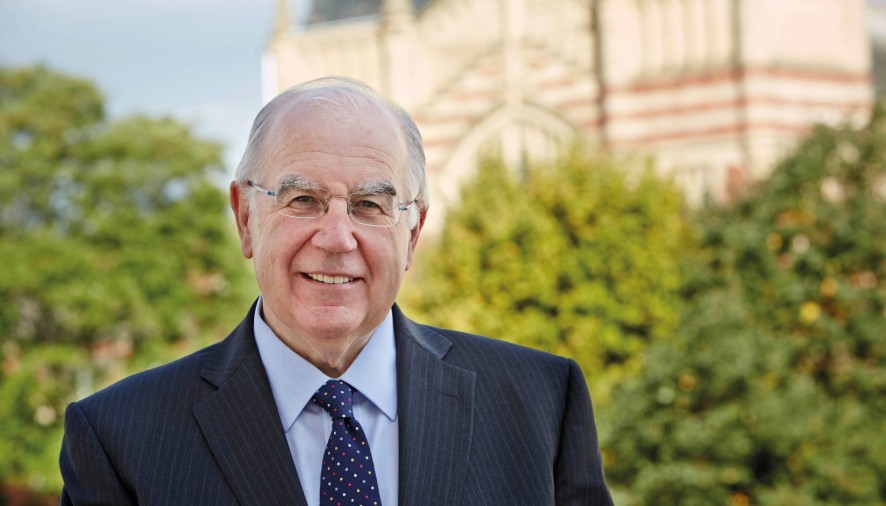The Gryphon speaks to Sir Alan Langlands about the redevelopment programme, Brexit and the cost of university.
Why would you say now is such an exciting time to be joining the University?
I think it is exciting for all of us and not just Freshers. I love this sense of new beginnings. Starting next week there will be 11,000 new people joining the university.There are very few institutions in the world where a quarter of the population changes every year and it is the responsibility of the university to ensure that people’s energy and new ideas are embraced.
What can we look forward to with the university redevelopment programme?
I purposefully didn’t start with buildings, as Vice Chancellors seem to arrive into universities as normal human beings and then turn into property developers! I don’t like the work of the university to be defined by its buildings, but I’ll admit it helps. Over the next five years we’re spending £520 million on new facilities, high-end technology and the student’s union. I got a note from someone saying “The Edward Boyle library is looking fantastic” – apparently even better than the Laidlaw Library (although I don’t know if that’s possible!)
Rent is is a big issue with the NUS. What is the university doing to ensure there is affordable accommodation?
The NUS accommodation cost survey specifically commends the University of Leeds. The University has kept 25% of its accommodation below £110 a week – this is in spite of adding new build to its stock over the last three years.
Unlike a lot of other universities we own 75% of the accommodation we use, so we have control. As we own so much of it we are in a sense competing with the private investors to give decent value. I’m not saying there won’t be some people complaining, or it will be fair and straightforward for everyone, but we try hard with this and I was really pleased that the NUS identified that.
How do you think Brexit will affect this university?
Everyone was surprised by the result and there hadn’t been a lot of preparation or prior discussion on what we would do. We’ve got about 1700 students, 700 academic and support staff and just over £20 million in research funding. from the EU The risks are we’ll lose out on some of that. The crunch is the people – we benefit enormously from having EU students here. I think for the moment we will be okay but universities are never going to be the first thing affected in these negotiations. However, I am quite hopeful – this is a very international university. We’ve got alumni in over 190 countries, so in a way we were international before we joined the EU.
Do you think that when we leave the EU it will affect the standing of UK universities globally?
A lot would depend on the money. Global rankings are driven by research. We put 5.4 billion euros into the EU research pot and we take 8.8 billion out. The UK and Germany are most successful in competing for EU funding. As Brexiteers were saying in the run up to the election, if the government can use the money that it saves from Europe to bolster science research and education then that will be okay.
How can you justify the University’s plans to increase tuition fees to £9250?
The average cost per student is considerably more than that figure and the increase, linked to inflation, essentially covers the cost of teaching. If we didn’t do it we would fall behind other universities in what we could do for our students. We have to do it but that doesn’t mean I like it.
We are trying to do it in a fair way – it doesn’t apply to existing students, students with 2016 entry or those who have deferred entry.
The big decision of switching grants to loans is disgraceful and, without a doubt disadvantages those from a poorer background. It’s not sustainable to just keep putting fees up all the time. There is a discussion to be had over society’s input, as it benefits teachers, architects, medics and nurses, but then the individual also benefits. There should be more of a balance.
What would you say to students joining now about financial burden?
Well I would say to students now that the equation is still broadly in their favour, that firstly there is a strong likelihood that they will go on and have a stronger career and will benefit and be able to pay back their student loan.
What advice would you give to new students on how to make the most of their time at Leeds?
There is a serious side, as you do come here to expand and broaden your knowledge but also to grow on a personal level and to question things. Universities really like people with critical minds who are willing to challenge. Challenge, soak up as much knowledge as you can but also take time to take all the opportunities for personal growth, such as volunteering or by joining a club or society or study abroad.
Polly Hatcher, Jessica Murray
(Image: University of Leeds)

